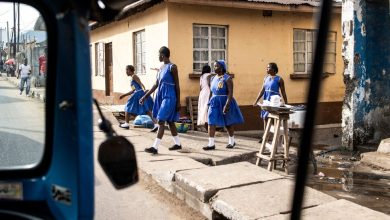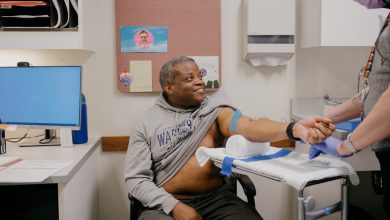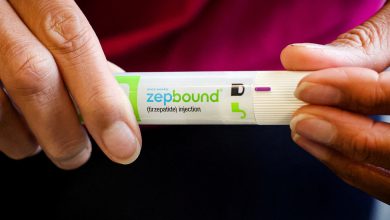F.D.A. Panel Recommends R.S.V. Shot to Protect Infants

The News
A Food and Drug Administration advisory panel recommended approval of a monoclonal antibody shot aimed at preventing a potentially lethal pathogen, respiratory syncytial virus, or R.S.V., in infants and vulnerable toddlers.
The treatment, called Beyfortus by its developers Sanofi and AstraZeneca, would be the second such therapy that the F.D.A. has allowed to be given to very young children to prevent R.S.V., which is a leading killer of infants and toddlers globally. A similar treatment approved more than 20 years ago is given in multiple doses and is only approved for high-risk infants.
The 21-member panel voted unanimously in favor of giving the treatment to infants born during or entering their first R.S.V. season. The advisers voted 19-2 for giving the shot to children up to 24 months of age who remain vulnerable to severe disease.

Up to 80,000 children younger than 5 are hospitalized annually in the United States with respiratory syncytial virus and up to 300 die. Credit…Marijan Murat/dpa, via Reuters
Why It Matters: R.S.V. is a global killer of infants.
Though many people experience this common virus as a routine cold, it can be serious in young infants and older adults. According to the Centers for Disease Control and Prevention, up to 80,000 children younger than 5 are hospitalized with the virus each year and up to 300 die. R.S.V. played a role in filling children’s hospitals during this winter’s “tripledemic,” which also included the flu and Covid-19.
For adults 65 and older, as many as 160,000 hospitalizations are attributed to R.S.V., and about 10,000 deaths. Vaccines for older adults have also recently been approved.
Background: The shot’s safety will be monitored.
More than 3,200 infants were given the antibody shot during studies provided to the F.D.A. by the drugmakers, including one that found that after six months, efficacy against very severe R.S.V. that required medical attention was 79 percent.
A separate agency panel has recommended approval of a maternal R.S.V. vaccine that is also under review. Some of the advisers raised concerns about data for that vaccine, and for another like it that suggested a small increase in preterm births.
If the antibody therapy is approved, the F.D.A. said it would continue to monitor the treatment for safety using several data sources. AstraZeneca said it would also conduct periodic safety reviews using worldwide data.
What’s Next: The C.D.C. will review shots for mothers and babies.
If the agency approves the new shot, it will likely become available in the fall — around the same time that the Pfizer R.S.V. vaccine given during pregnancy called Abrysvo goes on the market.
The C.D.C. is expected to advise health providers on the use of the new treatments later this month. Families and their doctors could then choose a course of treatment that would take into account the timing of a birth and the winter R.S.V. season, among other factors.
The F.D.A. said there was no study of the risks or benefits of women taking the maternal R.S.V. vaccine and giving the antibody shots to their infants.




